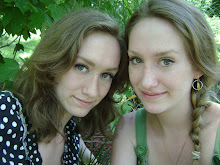In chapter 5 about doulas it states, "Doulas are trained through an apprenticeship program during which they take childbirth classes, observe women in labor, and remain after the birth to help in postpartum care. They assist in these births under the guidance of a more experienced doula before they are allowed to assist a midwife or physician on their own. After each of the births their work is evaluated by a doctor, a midwife, and the parents." (93-94, Lake and Epstein). My first endeavor is to become a doula (yet like I mentioned in my profile my husband and I are in the process of saving money for purchasing land and building our dream home so I have decided to put my education expencenses and aspirations on hold for the time being and focus on educating myself with limited funds). This chapter says of doulas: "Many women who hire a doula go through childbirth education with her. She helps you explore your ideas and feelings about birth and can work with you to finalize your birth plan." This is just want I would love to do for women: comfort, educate, and learn with them...natural health is my main focus. The passages goes on to say, "A woman who trusts her doula and has worked with her over the course of the pregnancy, and through her anxieties about childbirth, may find it easier to surrender to the birth and can find the transition to the second stage of labor more comfortable." On page 97 of this chapter it states: "If you cannot afford a doula, there are volunteer doulas in some areas (look for these organizations online). Often, but not always, these are less experienced doulas working on their education." I would definitely fit in with the "less experienced" and for some of my friends who are pregnant who can't afford a doula I am willing to assist them with support and advice (for which I obtain through research)...and maybe at some point I might become a volunteer doula when I decide to start working towards my doula certification.
Wednesday, June 17, 2009
Your Best Birth
After watching Ricki's and Abby's documentary film "The Business of Being Born", I looked into to their endeavor to inform women about the natural options for birth and stumbled upon their new book "Your Best Birth"; I checked it out at my local library and I really have become inspired by it! The two main chapters of interest for me are chapters 4 (Midwives: Not Just for Hippies Anymore) and 5 (Doulas: Labor'sLove). In chapter 4 a fascinating statistic is stated: "The rule of thumb is that a prenatal visit with a home birth midwife lasts from forty-five to sixty minutes; with a hospital-based midwife the visit is from fifteen to twenty minutes; and with a doctor it is from five to six minutes...midwives take on fewer patients so they can spend more time with them at each appointment." The passage goes on to say: "Prenatal appointments with midwives, which can start as early as eight weeks into pregnancy, are generally longer, more comprehensive, and more personal. They tend to focus on more holistic care, caring for the whole woman, which in addition to your physical health means asking you about your diet and your relationships, the stresses you're feeling, and what is going on at work and with your kids. The process is personal and intuitive as well as medical, tailored to the woman's individual needs." (77-78, Lake and Epstein). This chapter also describes the difference between a Certified Nurse-Midwife and a Certified Professional Midwife (which I aspire to become). A Certified Professional Midwife is defined as follows: "This kind of midwife has studied pregnancy and birth formally through a program that does not require a nurse certificate. in order to gtet her credential, she needs to verify that she has completed the required clinical training, which includes attending births and doing prenatal care. Currently, most of these midwives attend births at home."(pg. 78) I also love this aspect of a midwifes philosophy: "Ultimately a midwife wants to empower you to push your own baby out safely and she will be there to 'catch' it. Midwives don't like to use the word 'deliver' as this takes away from the mother's active participation in the birth." (pg. 82). In this chapter Leslie Turner's (a midife who graduated from Yale and is now in New York City) story is told...I find it very interesting and enlightening that she says, "While most people think about a midwife in the role of attending births, in actuality it is so much more. Midwives are trained to work with women throughout the lifespan, far beyond their reproductive years. While I love providing family planning and prenatal care and attending births, my work with postemenopausal women is so enriching. In my current position I work with women of all ages, from thirteen to ninety, as well as all races and backgrounds. Being a midwife is about so much morethan assisting a woman through the process of birth. It is about assisting a woman through the process of life; providing her with information and a safe space to make choices that support her physical, emotional, and social health." (81, Lake and Epstein). This is so encouraging to me for I interested in woman's (as well as children's) health as a whole; while I am intrigued with the birthing process I also desire to become well educated in women's health for their entire lifetime.
In chapter 5 about doulas it states, "Doulas are trained through an apprenticeship program during which they take childbirth classes, observe women in labor, and remain after the birth to help in postpartum care. They assist in these births under the guidance of a more experienced doula before they are allowed to assist a midwife or physician on their own. After each of the births their work is evaluated by a doctor, a midwife, and the parents." (93-94, Lake and Epstein). My first endeavor is to become a doula (yet like I mentioned in my profile my husband and I are in the process of saving money for purchasing land and building our dream home so I have decided to put my education expencenses and aspirations on hold for the time being and focus on educating myself with limited funds). This chapter says of doulas: "Many women who hire a doula go through childbirth education with her. She helps you explore your ideas and feelings about birth and can work with you to finalize your birth plan." This is just want I would love to do for women: comfort, educate, and learn with them...natural health is my main focus. The passages goes on to say, "A woman who trusts her doula and has worked with her over the course of the pregnancy, and through her anxieties about childbirth, may find it easier to surrender to the birth and can find the transition to the second stage of labor more comfortable." On page 97 of this chapter it states: "If you cannot afford a doula, there are volunteer doulas in some areas (look for these organizations online). Often, but not always, these are less experienced doulas working on their education." I would definitely fit in with the "less experienced" and for some of my friends who are pregnant who can't afford a doula I am willing to assist them with support and advice (for which I obtain through research)...and maybe at some point I might become a volunteer doula when I decide to start working towards my doula certification.

In chapter 5 about doulas it states, "Doulas are trained through an apprenticeship program during which they take childbirth classes, observe women in labor, and remain after the birth to help in postpartum care. They assist in these births under the guidance of a more experienced doula before they are allowed to assist a midwife or physician on their own. After each of the births their work is evaluated by a doctor, a midwife, and the parents." (93-94, Lake and Epstein). My first endeavor is to become a doula (yet like I mentioned in my profile my husband and I are in the process of saving money for purchasing land and building our dream home so I have decided to put my education expencenses and aspirations on hold for the time being and focus on educating myself with limited funds). This chapter says of doulas: "Many women who hire a doula go through childbirth education with her. She helps you explore your ideas and feelings about birth and can work with you to finalize your birth plan." This is just want I would love to do for women: comfort, educate, and learn with them...natural health is my main focus. The passages goes on to say, "A woman who trusts her doula and has worked with her over the course of the pregnancy, and through her anxieties about childbirth, may find it easier to surrender to the birth and can find the transition to the second stage of labor more comfortable." On page 97 of this chapter it states: "If you cannot afford a doula, there are volunteer doulas in some areas (look for these organizations online). Often, but not always, these are less experienced doulas working on their education." I would definitely fit in with the "less experienced" and for some of my friends who are pregnant who can't afford a doula I am willing to assist them with support and advice (for which I obtain through research)...and maybe at some point I might become a volunteer doula when I decide to start working towards my doula certification.
Subscribe to:
Post Comments (Atom)


Jessy, I enjoy reading the articles in this book that interest you and also your input. Keep up the midwife and doula posting ;-)
ReplyDelete